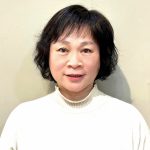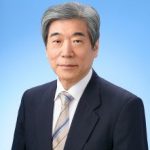FY2023 2nd International FPCJ Webinar: Security in East Asia: How Is Foreign Media Reporting on the Situation in Taiwan and Japan?

On January 13, 2024, Taiwan held a presidential election due to the end of President Tsai Ing-wen’s term. A major point of contention for this election was the future of relations with mainland China, and it received attention from around the world due to the likelihood of the results, regardless of who won, having a major impact on the future of relations with mainland China and on Taiwan’s situation overall. Lai Ching-te of the ruling Democratic Progressive Party won the election.
Although the international community as a whole hopes that the issues surrounding Taiwan will be peacefully resolved through direct dialogue between Taiwan and mainland China, the FY2023 Defense of Japan white paper stated, “…since China has consistently expressed its intention of not renouncing the use of force to Taiwan, the country may make a decision on military options such as air and maritime blockade, limited use of force, air and missile operations, and invasion of Taiwan.”
The white paper also suggests, “While the Biden administration is clarifying its stance of supporting Taiwan in the military-related area, it is deemed unlikely that China, which positions Taiwan issues as ‘the core of the core interests,’ will show a compromising attitude towards the U.S. stance. It is viewed that the U.S.-China conflict over Taiwan may become more apparent.”
In the event of an armed conflict in Taiwan, the US may call for support from Japan based on the US-Japan Security Treaty, and what the Japanese government would do in that situation is an extremely important issue.
Considering the above, this webinar will invite leading foreign journalists covering this issue in Tokyo and Taipei, and after looking at how the international media is reporting on this issue, discuss “What Should Concerned Parties (China, Taiwan, the US, Japan, etc.) Do to Avoid Armed Conflict in Taiwan.”
Webinar Format
Session 1: The Positions of Concerned Parties (China, Taiwan, the US, Japan, etc.) Regarding the Taiwan Issue, and Media Reporting on It
After an explanation of the positions of the main concerned parties, China, Taiwan, the US, and Japan, the three foreign correspondents will explain how the media organizations they belong to report on the Taiwan issue, with a particularly focus on reporting regarding the positions of the concerned parties. Together with the Japanese panelists, there will then be an open debate on the arguments in Japan over the possibility of an armed conflict in Taiwan.
Session 2: What Should Concerned Parties (China, Taiwan, the US, Japan, etc.) Do to Avoid Armed Conflict in Taiwan
This session will discuss what China, Taiwan, the US, and Japan should do in order to avoid an armed conflict in Taiwan. Specifically, whether armed conflict in Taiwan can be prevented with the US maintaining strategic ambiguity, and what role Japan should play and what actions it should take to avoid armed conflict in Taiwan.
Outline
1.Date and Time
15:00–17:00 (JST), Wednesday, February 28, 2024
2. Format
Online only (Zoom webinar)
3. Languages
English/Japanese (simultaneous interpretation)
*Note: Depending on the panelist, they will speak either English or Japanese, with simultaneous interpretation for both languages. In order to use the simultaneous interpretation function, be sure to install the Zoom application ahead of time (if you connect via browser, the icon for interpretation will not be displayed).
4. Support
Ministry of Foreign Affairs of Japan
5. Cost
Free
6. Program and Panelists
|
15:00-15:05 (5 min.) |
Opening remarks |
Kazuo Kodama (FPCJ President) |
|
15:05-15:55(50 min.) |
Session 1 (initial statements, discussion) |
All panelists and moderator |
|
15:55-16:35(40 min.) |
Session 2 (initial statements, discussion) |
All panelists and moderator |
|
16:35-16:50(20 min.) |
Q&A |
All panelists and moderator |
|
16:50-17:00(10 min.) |
Overall summary |
All panelists |
|
17:00 |
Closing remarks |
Kazuo Kodama (FPCJ President) |
◆Panelists
Foreign Media
|
Yang Ming Chu, Tokyo Bureau Chief, Central News Agency (Taiwan) From Taichung City (formerly Taichung County), Taiwan. Graduated from the Tamkang University Department of Japanese. Received a master’s degree in international relations from the Tokyo University of Foreign Studies. After working as a director for programs about Japan at TVBS (a major cable television station in Taiwan) and as a correspondent for the Asahi Shimbun Taipei Bureau, came to Japan as Tokyo correspondent for Central News Agency in 2006. Became Tokyo Bureau Chief in 2011. Central News Agency will mark its 100th anniversary this year. She reports not only on Japanese politics and foreign affairs, but also on cultural and social news from around the country. |
 |
|
Noah Sneider, Tokyo Bureau Chief, The Economist (UK) The Economist’s Tokyo Bureau Chief since 2020, covering Japanese politics, business, society and culture. Prior to this position, he was a Moscow correspondent. Before joining The Economist, he reported for a range of publications, including The New York Times and The New Republic. |
 |
|
Kathrin Hille, Greater China Correspondent, Financial Times (UK) Kathrin Hille has worked for the Financial Times for over twenty years. She writes about Taiwan, regional security and hardware technology for the FT. She was previously the FT’s Moscow bureau chief and a correspondent at its Beijing and Taiwan bureaus, before beginning in her current position in 2018. |
|
Expert (Japanese media)
|
Yoichi Kato, Special Fellow, Waseda University Institute of Asia-Pacific Studies KATO Yoichi is a special fellow at the Waseda Institute of Asia-Pacific Studies (WIAPS) in Tokyo. He is also affiliated with the Institute for National Defense and Security Research (INDSR) in Taipei, Taiwan. He is a political reporter by training and worked for the Asahi Shimbun for more than three decades until 2015. He has served as bureau chief of Asahi’s American General Bureau in Washington, D.C., and as national security correspondent in Tokyo. |
 |
Academics
|
Ryo Sahashi, Associate Professor of International Politics, Institute for Advanced Studies on Asia, The University of Tokyo Held positions as a Postdoctoral Fellow at the Australian National University, Project Assistant Professor at the University of Tokyo, and Assistant Professor followed by Professor at the University of Kanagawa Faculty of Law, before beginning at his current position in 2019. A member of the Ministry of Foreign Affairs Advisory Panel on Science and Technology Diplomacy. His focus is on international political science, particularly US-Middle East relations and international relations in East Asia. |
 |
◆MC/Moderator
|
Kazuo Kodama, FPCJ President Joined the Ministry of Foreign Affairs in 1976. After serving in roles including Press Secretary and Ambassador Extraordinary and Plenipotentiary of Japan to the European Union, he left the ministry in September 2020, joining the FPCJ in November of the same year. From 2022, Visiting professor for international politics at the law faculty of the University of Hiroshima. |
 |
*Program details, times, and panelists are subject to change without notice.
7. How to Register
Register using the URL below:
https://us02web.zoom.us/webinar/register/WN_Fswr4yyLQhutAFpAY2Eymg
*An automatic confirmation email with a link to the webinar will be sent from no-reply@zoom.us immediately after applying. If you do not seem to have received this email, check your spam and trash folders. If you cannot find it, please contact us as indicated below.
*We will inform by email all those who have registered about a video of the webinar. Even if you cannot participate live on the day of the webinar, please consider registering.
Contact Information
Sato (Ms.),Ishida (Ms.)
Media Communication and Planning Division
Foreign Press Center Japan
sympo@fpcjpn.or.jp | 03-3501-5251
~ About FPCJ International Webinars ~
Two or three international webinars are held by the FPCJ each year, as unique projects representing our role in acting as a bridge between Japan and members of the foreign media. Through these webinars, we will create opportunities to hear the perspectives of foreign correspondents who are active in reporting on Japan, discussing topics that are important not just to Japan, but to the international community as a whole.




